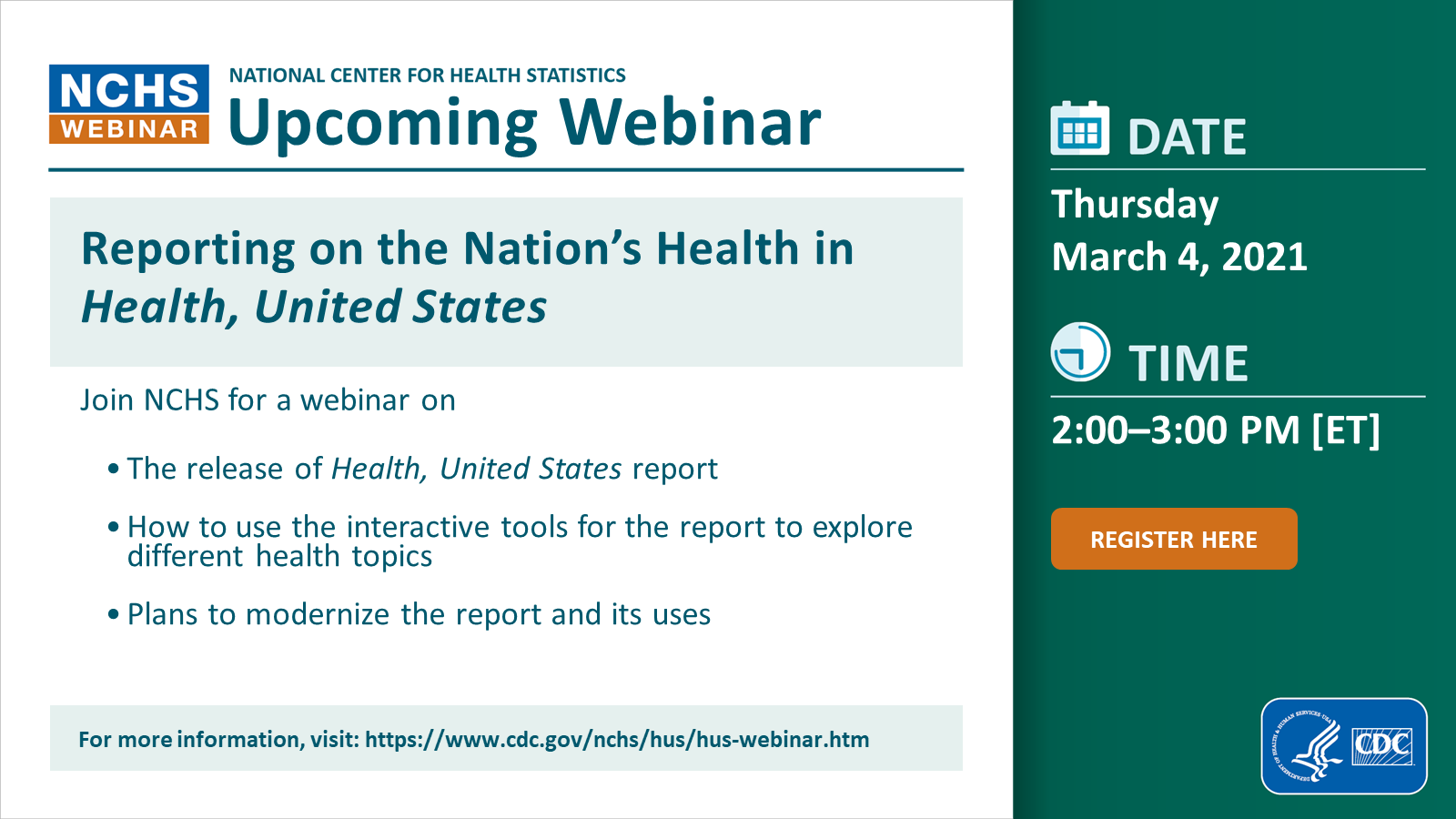Date and Time: Thursday, March 4, 2021 at 2 pm EST.
To register: https://cdc.zoomgov.com/webinar/register/WN_FEeFLvH3S6mVlsuvbW6dSQexternal icon
Description: The Health, United States report series features national trends in health status and determinants, health care utilization, health care resources, and health care expenditures and payers from a variety of data sources. The latest Health, United States report for the President and Congress, to be released on March 2, 2021, provides relevant data to policymakers and public health professionals to inform evidence-based decisions. This National Center for Health Statistics webinar will summarize key findings from the report, review tools for using the data in health disparities research, and update viewers on program modernization efforts.











